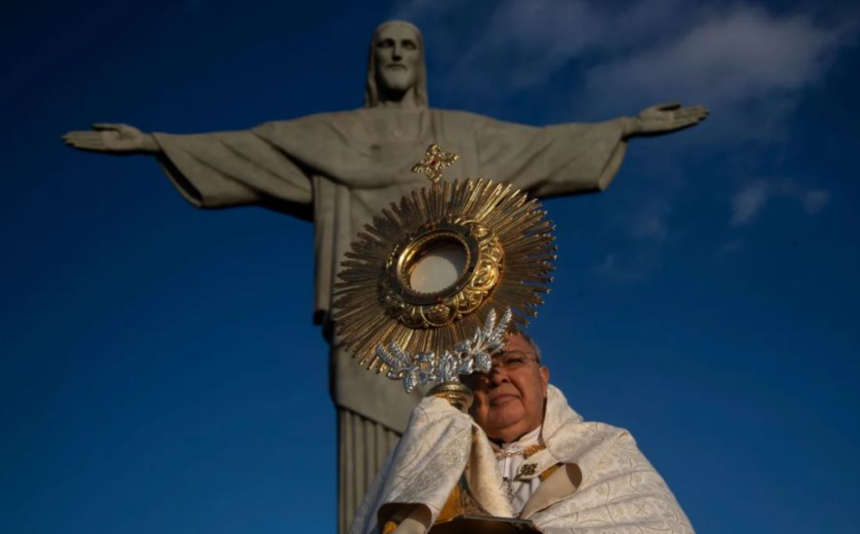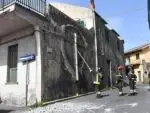Perched atop the Corcovado Mountain, the Christ the Redeemer statue in Rio de Janeiro is more than just a religious symbol or a tourist attraction – it is an enduring icon of Brazilian identity. Cristo Redentor, as it is known in Brazil, is a postcard not only for the city of Rio but for the entire country.
With its outstretched arms, the statue seems to personally welcome the more than 4 million visitors who make the journey to see the monument each year. But now, the management and future of the statue are at the center of a growing debate over religion, conservation, and governance.
A New Legislative Proposal
In October, a proposed bill was introduced that would transfer the management of the land where the statue stands from federal oversight to the Catholic Church. Supporters argue that church stewardship would address longstanding issues with infrastructure and access. However, critics see the move as a threat to Brazil’s secular state and its environmental commitments.
A Monument in a Forest
Built in 1922 by the Catholic Church, the Christ the Redeemer statue is located within the Tijuca National Park, a 3,953-hectare space of restored Atlantic rainforest, known as one of the world’s first large-scale reforestation projects, initiated in 1861.
Replanted to mitigate the effects of deforestation caused by coffee plantations, the park was established by Brazil’s then emperor to preserve ecologically significant ecosystems and provide a sacred space for biodiversity. It was declared a UNESCO World Heritage site in 2012 and today is home to 1,619 plant species and 328 animal species, many of which are endangered.
“This park is much more than just the backdrop for Christ,” says Mauro Pires, president of Brazil’s national parks agency, ICMBio. “It’s a vital ecological system that supports local wildlife and plays a role in regulating Rio’s climate and water supply.”
However, the balance between tourism and conservation is delicate, especially in high-traffic areas like Corcovado.
A Deal Between Church and State
The proposed bill suggests separating the Christ statue and its surrounding area from the Tijuca National Park, making it a distinct and independent area to be managed by the Archdiocese of Rio de Janeiro. Under the church’s sole management, it would be responsible for any necessary renovations, and it could begin to collect revenue from ticket sales.
The current arrangement divides responsibilities between the church and the federal government. Despite being located on federal land, the archdiocese has special authorization to worship at the statue and the nearby church at any time and is responsible for their upkeep, though not for the surrounding infrastructure.
The federal government oversees the integrity of the park and its infrastructure – including roads, transport, restrooms, escalators, and tickets to the statue. A portion of the ticket sales and concessions is paid to the Church, and according to a park spokesperson, in 2023, this amounted to $1.78 million.
Thus far, the site has functioned as a religious destination within a secular space. Masses, baptisms, and weddings can be held at the foot of the statue, as long as the general public still has access to the park during visiting hours.
The Church and supporters of the proposed bill, on the other hand, argue that more should be done to capitalize on the monument’s fame. “If a Brazilian brand wants to adopt our space, renovate it, and put its name on it, why shouldn’t they be able to do so?” asked Claudine Milione Dutra, legal coordinator for the Archdiocese of Rio de Janeiro.
Dutra argues that federal bureaucracy is also hindering the resolution of some of the park’s current issues. In presenting the bill in October, lawmakers described escalators, bathrooms, and water sources that had been out of service for months.
“We cannot accept that Christ, Brazil’s most iconic international symbol, remains in a state of neglect,” said Senator Carlos Portinho, the author of the bill, when presenting it to the Senate. “The Church has historically cared for the statue and is best positioned to manage it effectively.”
Pires, the head of the national parks agency, acknowledged that repairs are needed but stated that privatization is not the solution. Under former President Jair Bolsonaro’s administration, national park budgets were slashed, and only now are funds being restored, he said. Many of the necessary renovations, in Tijuca and other national parks, could not be completed for this simple reason.
However, for 2025, the agency has allocated $12 million to carry out renovations at the top of Corcovado Mountain – including repairs to the statue’s foundations.
“A Dangerous Precedent”
Under the proposed legislation, the Church would gain control over the statue and the surrounding area, along with its infrastructure, which would be separated from the National Park. Although this area would be less than 0.02% of the park’s total size, the national parks agency warns that the proposal could create a dangerous precedent.
“This isn’t just about the statue; it’s about the integrity of all conservation areas in Brazil,” explained Pires. “The separation of sections of national parks for private management could undermine decades of progress in environmental protection.”
The park’s fragile ecosystem includes species such as capuchin monkeys. Tapirs and jaguars also once roamed the park but have since disappeared. Increased noise, pollution, and construction could disrupt these habitats.
But Dutra dismisses these concerns, stating that the Church shares an interest in conservation. “We have maintained the statue and its nearby surroundings responsibly. Our goal is to improve the visitor experience, not harm the environment,” she said.
At its core, the debate is not just about land use or conservation. Brazil’s secular constitution prohibits the government from favoring religious institutions, but the Christ statue is pushing the discussion into a grey area, raising questions about how Brazil can balance its Catholic roots with its secular and environmental commitments.
The proposed bill – co-sponsored by Senator Flavio Bolsonaro, the son of the former president – has already passed the Senate and is now being weighed by a subcommittee on tourism. If approved there, it will move to the Chamber of Deputies, which will decide whether the future of the Christ statue lies with the Church or the state – or some reimagined partnership.







